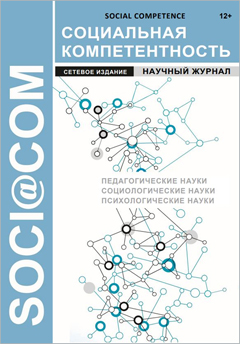Training of specialists in the field of education at Harvard University
DOI:
https://doi.org/10.24866/2658-5855/2024-1/6-13Keywords:
teacher training, doctoral program, Harvard UniversityAbstract
The article reveals the main results obtained during the study of the issue of training highly qualified specialists at Harvard University (USA). The basic requirements for obtaining a Ph.D. (Doctor of Philosophy in Education) and an Ed.L.D (Doctor of Pedagogical Sciences in Leadership) degree are presented, the stages of training, directions, courses that are obligatory and optional in the learning process are characterized.
Downloads
References
Портрет современного российского аспиранта / С.К. Бекова, И.А. Груздев, З.И. Джафарова, Н.Г. Малошонок, Е.А. Терентьев; НИУ «Высшая школа экономики», Институт образования. Москва: НИУ ВШЭ, 2017. 60 с. = Beloved S.K., Gruzdev I.A., Jafarova Z.I., Maloshonok N.G., Terentyev E.A. Portrait of a modern Russian graduate student. Moscow, Higher School of Economics Publ., 2017, 60 p. (In Russ.).
Brailsford I. Motives and aspirations for doctoral study: Career, personal, and interpersonal factors in the decision to embark on a history PhD. International Journal of Doctoral Studies, 2018, no. 5(1), pp. 16–27. https://doi.org/10.28945/710
Auriol L., Misu M., Freeman A.R. Careers of doctorate holders: analysis of labour market and mobility indicators. Paris, OECD Publ., 2019. https://doi.org/10.1787/5k43nxgs289w-en
Evans L. What is effective research leadership? A research-informed perspective. Higher Education Research and Development, 2013, no. 33(1), pp. 46–58. https://doi.org/10.1080/07294360.2013.864617
Vittorio N. European Doctoral Programs in Light of EHEA and ERA. The European Higher Education Area: Between Critical Reflections and Future Policies. Eds. A. Curaj, L. Matei, R. Pricopie, J. Salmi, P. Scott. Springer Open, 2015, pp. 555–570.
Ali A., Kohun F. Dealing with isolation feelings at IS doctoral programs. International Journal of Doctoral Studies, 2017, no. 1, pp. 21–33. URL: http://ijds.org/Volume1/IJDSv1p021-033Ali13.pdf
Ali A., Kohun F. Dealing with some isolation to minimize doctoral attrition: A four stage framework. International Journal of Doctoral Studies, 2007, no. 2, pp. 33–49. URL: http://www.ijds.org/Volume2/IJDSv2p033-049Ali28.pdf
Park C. Redefining the Doctorate. York, The Higher Education Academy, 2007, 21 p. https://www.researchgate.net/publication/277152442_Redefining_the_Doctorate
Fakunle O., Dollinger M., Alla-Mensah J., Izard B. Academic conferences as learning sites: A multinational comparison of doctoral students’ perspectives and institutional policy. International Journal of Doctoral Studies, 2019, no. 14, pp. 479–497. https://doi.org/10.28945/4383
Duke N., Beck S. Education should consider alternative formats for the dissertation. Educational Researcher, 2019, vol. 28, no. 3, pp. 31–36. http://www.ed.org/Volume28/IJDSv2p033-049.pdf
Nehls K., Watson D.L. Alternative Dissertation Formats: Preparing Scholars for the Academy and Beyond. In book: Contemporary Approaches to Dissertation Development and Research Methods. Eds. Storey and Hesbol, 2016, pp. 43–52. https://doi.org/10.4018/978-1-5225-0445-0.ch004
Cassuto L., Jay P. The PhD dissertation: In search of a usable future. Pedagogy, 2015, no. 15(1), pp. 81–92. https://doi.org/10.1215/15314200-2799212
Downloads
Published
Issue
Section
License
Copyright (c) 2024 Галина Анатольевна Михайлова

This work is licensed under a Creative Commons Attribution-NonCommercial-NoDerivatives 4.0 International License.


